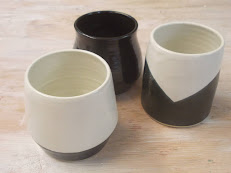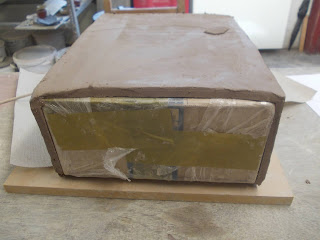When we were youngsters my parents would take us up to Kelso in the Scottish borders to visit my great grandmother and participate in the "pace egg" rolling which took place there every Easter Monday.
We would prepare our pace eggs in advance. These were eggs that we put leaves around and wrapped in old stockings (tights hadn't been invented) and boiled them in onion skins to dye them. The liquid went through the stockings but couldn'r go through the leaves, so you were left with a pattern on the outside.
This is my modern day take - not so good because it is difficult to get white eggs now, and I used red food dye.
There
is some debate about where the name pace egg originates. Some say it’s
from the Old English Pasch meaning Passover, others that it’s from the
French word for Easter, Pâques. Or it could be derived from Latin – some
claim it’s from Pacha, which means Easter.
Then we would take a picnic with lots of other people and go to the old site of Roxburgh castle, just outside Kelso, next to the River Tweed. Then we would roll our eggs down the steep bank and hope they wouldn't fall into the river below, or crack open.
Apparantly, this tradition goes back hundreds of years and was popular in the Northern Counties of England and the borders of Scotland. Sometimes "pace" plays were performed in the towns where the hero was killed in a mock battle, but brought back to life. Is this a familiar theme at Easter?




















